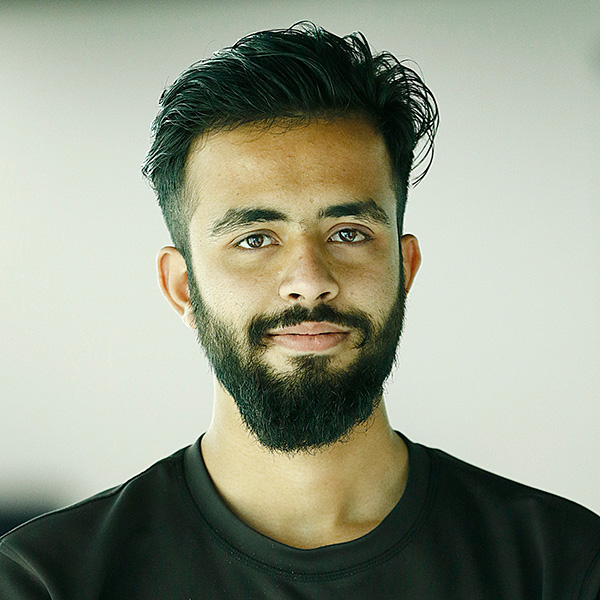Valley
Another explosion in capital--two weeks after a blast killing one--raises security alarm
Two weeks after a blast in Nakkhu, Lalitpur, an improvised device went off in Basundhara, Kathmandu, on Friday night, raising security alarm.
Nayak Paudel
Two weeks after a blast in Nakkhu, Lalitpur, an improvised device went off in Basundhara, Kathmandu, on Friday night, raising security alarm.
Police said the blast occurred at around 7:40pm at the residence of Rohan Gurung, president of the Nepal Association of Foreign Employment Agencies.
“The explosion destroyed a Landcruiser vehicle which was parked on the ground floor of his residence,” said Deputy Inspector General of Police Shailesh Thapa Kshetri. “The exterior of Gurung’s residence and those of their neighbours have also been affected by the explosion,” added Kshetri, the chief of the Metropolitan Police Office.
Friday’s incident comes at a time when police are yet to conclude their investigation into the February 22 Nakkhu blast, which killed one person and injured two others.
There, however, were no casualties in the latest explosion. “The Basundhara explosion was also big,” Kshetri told the Post. “No individual or group has taken responsibility for it.”
The Netra Bikram Chand-led Communist Party of Nepal owned up to the Nakkhu blast two days later, on February 24. Even as the outfit apologised for the loss of human life, it showed no signs of renouncing violence.
Sources at Nepal Police said the Chand party could be behind Friday’s blast too, as the devices used in both the incidents were similar in nature.
According to police, Gurung had not informed police about any threats or warnings to him.
“Gurung has not spoken about any threat to him from any individual or group,” SSP Basanta Lama, chief of the Metropolitan Police Range, Kathmandu, told the Post. “No individual [or] group has claimed the explosion. We’re looking into the incident. We cannot say at this stage who could have carried out the blast.”
The Chand-led Communist Party of Nepal, which is accused of indulging in extortion, has stepped up its activities of late and moved beyond “donation drives”, and Nakkhu blast was one of such intensified activities.
The blast in Nakkhu last month had come as reminiscent of the initial days of the Maoist “People’s War” in 1996 when they were heavily engaged in extortion and sporadic blasts in different parts of the country.
“Since the Chand-led party had owned up to a similar explosion, the needle of suspicion after Friday’s blast also points towards the same outfit,” said Senior Superintendent of Police Uttam Raj Subedi. The Nepal Police spokesperson added that the explosion left a crater in the parking area.
Even though the government has promised to tame the Chand party and curb its activities, it is yet to determine whether it should be treated as a political outfit or a terror group.
“It would have been helpful for police to carry their operations forward had the government made its position clear on the Chand party,” said Subedi. “The security agency needs to chart out a proper strategy, but it needs to be clear if it is dealing with a political outfit or a terror group.”
A former police official agreed.
“The government needs to make it clear whether the Chand outfit is a political outfit or a terror group because it makes a lot of difference when police carry out their investigation and launch action,” said Hemanta Malla, former deputy inspector general of police.
Over the past few months, police have arrested scores of Chand’s supporters, and Khadga Bahadur Bishwokarma, the party spokesperson, is one of them. However, no stern action has been taken against the outfit.
Nepal Police and the Armed Police Force on Thursday jointly raided the hometown of Chand in Kapilvastu, and seized two submachine guns, 68 rounds of ammunition and three magazines. Police also seized one Chinese pistol and three rounds of bullet.
The explosion on Friday occurred hours after Prime Minister KP Sharma Oli came down heavily on the Chand-led party during his speech at the City Hall in Kathmandu at a programme organised to make public the deal the government had reached with CK Raut, a Free Madhes campaigner. “The Chand-led party has been hiding arms and performing violent activities. It’s the government’s responsibility to maintain peace and order,” said Oli during the event in which Raut announced that he had quit his secessionist movement.
The prime minister also advised Chand to rename his party as “a group of looters”.
Police sources said the Basundhara explosion could have been aimed at extorting the foreign employment business.
Experts said the blasts—one after another in the Capital—pose a serious security threat.
“Attacks so far look like they were targeted at a specific company or group. Those who have been targeted, it appears, were warned beforehand, but they did not inform the security forces,” said Malla, the retired police official. “Such incidents should not be ignored.”
According to Malla, the longer the concerned agencies take to pin down the perpetrators, the bigger the security challenges will become in the coming days.
Home Minister Ram Bahadur Thapa on Saturday said the government would soon bring the Chand-led party’s criminal activities to an end.
“Chand’s party has been terrorising people across the country. Such activities will come to an end soon,” said Thapa, addressing a security workshop organised in Karnali Province.




 14.24°C Kathmandu
14.24°C Kathmandu














